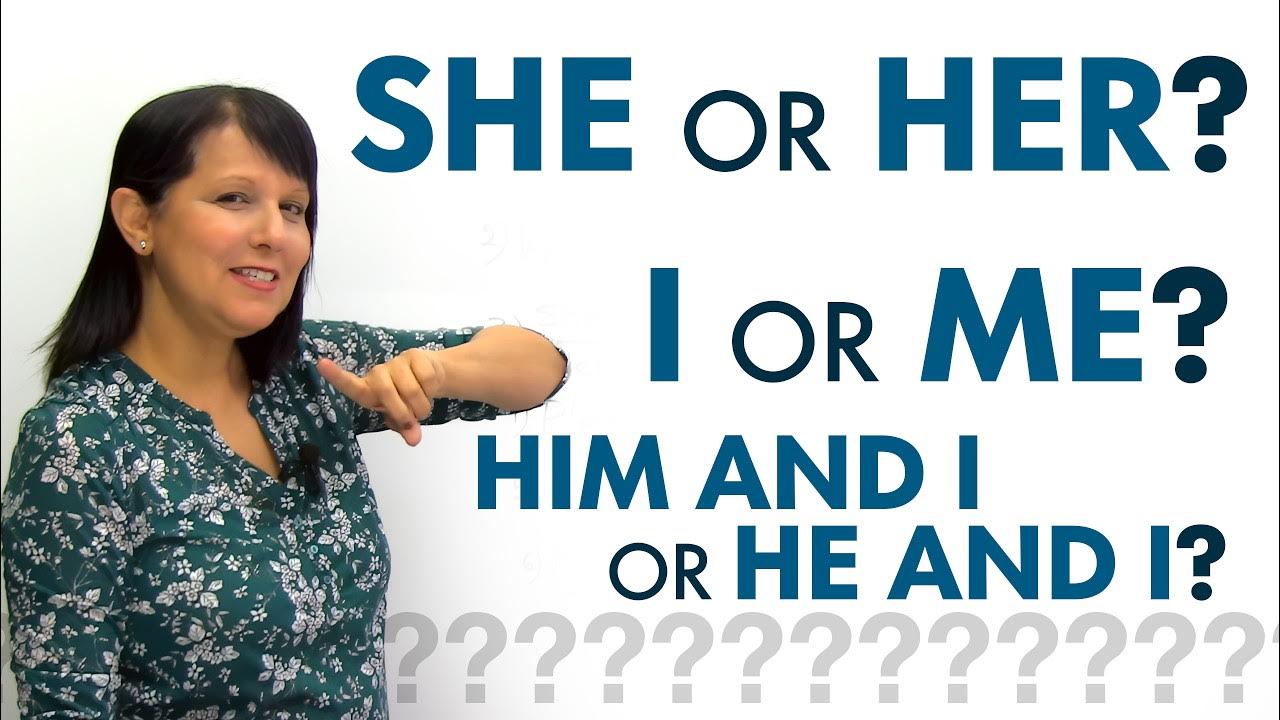WHO’S or WHOSE?
Summary
TLDRIn this lesson, Rebecca from engVid explains the difference between the commonly confused homonyms 'who's' and 'whose.' Both words sound the same but have distinct meanings and spellings. 'Who's' is a contraction for 'who is' or 'who has,' while 'whose' indicates possession. The lesson provides various examples to clarify their usage and emphasizes the importance of understanding homonyms, especially in writing. Rebecca also shares a helpful course for correcting common English mistakes, focusing on homonyms and other grammar errors to improve writing accuracy.
Takeaways
- 😀 Homonyms are words that sound the same but have different meanings and spellings, like 'who's' and 'whose'.
- 😀 'Who's' is a contraction for 'who is' or 'who has'. For example: 'Who's there?' means 'Who is there?'.
- 😀 'Whose' is a possessive form used to show ownership or possession, such as 'Whose phone is this?'
- 😀 The difference between 'who's' and 'whose' becomes clearer when considering whether the sentence is referring to 'who is' or 'who has' (use 'who's') or possession (use 'whose').
- 😀 Homonyms are more important when writing because their differences are visually obvious in text, unlike in spoken language.
- 😀 Autocorrect features on devices can often confuse homonyms, so it's important to understand the correct usage yourself.
- 😀 A helpful strategy for choosing the correct homonym is to break the sentence apart and check if it makes sense with 'who is' or 'who has'.
- 😀 The phrase 'Who's in charge?' uses 'who's' because it stands for 'who is'.
- 😀 The phrase 'Whose books are these?' uses 'whose' because it refers to possession—who owns the books.
- 😀 Rebecca recommends her course 'Correct Your English Errors in 10 Minutes a Day' to help learners tackle common homonyms and other language errors.
- 😀 In the course, learners can gain better control over common homonyms like 'you're' vs. 'your' and 'they're' vs. 'their', helping to write more accurately.
Q & A
What are homonyms?
-Homonyms are words that sound the same but have different spellings and meanings.
What are the two homonyms discussed in the video?
-The two homonyms discussed in the video are 'who's' and 'whose'.
What is the difference between 'who's' and 'whose'?
-'Who's' is a contraction for 'who is' or 'who has', while 'whose' is a possessive pronoun used to indicate ownership.
Why is it important to know the difference between 'who's' and 'whose'?
-It's important because using the wrong homonym in writing can make the meaning unclear or incorrect, which can affect the clarity and professionalism of your communication.
What is an example sentence using 'who's'?
-An example sentence is: 'Who's there?' which means 'Who is there?'
What is an example sentence using 'whose'?
-An example sentence is: 'Whose phone is ringing?' which asks 'Who does the phone belong to?'
How can autocorrect be misleading when using homonyms?
-Autocorrect can make mistakes when choosing between homonyms, as it doesn't always select the correct word based on context.
In the sentence 'Who's/Whose books are these?', which homonym is correct?
-'Whose' is correct because it indicates possession, asking 'Who do these books belong to?'
How can you determine when to use 'who's' or 'whose' in a sentence?
-You can break the sentence down to check if 'who is' or 'who has' makes sense. If it does, use 'who's'. If it doesn't, use 'whose'.
What is the importance of learning homonyms in English?
-Learning homonyms is crucial for proper writing and understanding, as they are commonly confused words that can change the meaning of sentences if used incorrectly.
Outlines

This section is available to paid users only. Please upgrade to access this part.
Upgrade NowMindmap

This section is available to paid users only. Please upgrade to access this part.
Upgrade NowKeywords

This section is available to paid users only. Please upgrade to access this part.
Upgrade NowHighlights

This section is available to paid users only. Please upgrade to access this part.
Upgrade NowTranscripts

This section is available to paid users only. Please upgrade to access this part.
Upgrade NowBrowse More Related Video

Confusing Subject & Object Pronouns: HE or HIM? I or ME? SHE AND I or HER AND I...?

Writing & Punctuation: How to use a COMMA correctly in a complex sentence

Confusing Words – affect & effect, compliment & complement, and more!

🟣 HOMÔNIMOS e PARÔNIMOS (Semântica) || Prof. Letícia Góes

How to say the time in English

Clase 7 parte 2: Possessive 'S genitivo sajón. Diferencia entre WHO, WHOSE y WHO'S y sus usos.
5.0 / 5 (0 votes)